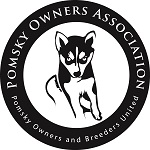Homemade dog food has advantages and disadvantages. If done properly, this can be a fantastic nutritional option for dogs. But, if done incorrectly, giving your dog an uneven homemade diet will have a bad effect on its health.
The term “homemade dog food” refers to food that is cooked at home for dogs by pet owners using the same “human food” elements that humans use in diets.
With a homemade dog food diet, dogs can stay away from canned wet dog food, dry kibble, and other processed commercial dog food brands.
Reasons Pet Owners Should Opt Homemade Dog Food
Pet owners opt to feed homemade dog food recipes for a variety of reasons, including:
- The desire for superior quality ingredients or quality control
- A major worry of too many commercial pet food recalls
- More tempting recipes for fussy dogs who refuse to eat
- Special health requirements for sick dogs
- Being aware of the ingredients in every single meal your dog consumes
It makes sense that more and more dog owners are preparing their own homemade dog food instead of purchasing commercial dog food brands, given the controversy surrounding the pet food industry.
The Pros of Homemade Food Dog Food
Homemade dog food recipes can be incredibly advantageous for a variety of reasons when they are balanced nutritionally and tailored to the needs of each particular dog. A dog owner should collaborate with a professional canine nutritionist or a veterinarian to achieve this.
Veterinarian care and a correctly chosen homemade dog food diet with elements suitable for such diseases can help manage health issues, including renal, liver, or heart disease.
Puppies, adult dogs, and senior dogs can all benefit from homemade food. Below are a few benefits of feeding homemade dog food.
Quality Pet Food Regulation
Dog owners worry about the quality and safety of the dog foods they feed their canines because pet food recalls are rather common these days. Check out petfoodbrands.net for more information on high-quality dog food brands
Producing homemade dog food for your pet gives you considerably more control over what goes into your diet than buying a commercial dog food brand.
Here we are not only referring to meat vs. byproducts; but also talking about the specific cuts of meat, the meat’s source, and the meat’s general quality.
2. Greater Dietary Variety
When feeding a commercial dog food diet, it’s common practice to give your pet the same kind of kibble for at least a month at a time (one 30 lb bag of kibble). Your dog may find this lack of variety dull, and it is also nutritionally deficient.
3. Homemade Food Don’t Contain Filler ingredients
Commercial pet foods use cheap filler ingredients with little nutritional value to bulk up their products. This enables the production of a significant amount of food at a low cost.
Less nutritious ingredients have a tendency to slip through your dog’s system and increase waste production.
Making your own dog food allows you to maximize nutritional content while removing unneeded fillers.
4. Improved nutrition May Be Provided by a Homemade Dog Food
Commercial dog diets frequently contain ingredients that are vague in terms of details, despite the fact that ingredient labels provide information (for instance, “meat byproduct”).
As a result, you end up feeding your dog unidentified components, or at the absolute least, artificial ones. Feeding homemade dog food recipes enables you to increase the amount of whole foods and nutritious nutrients in your pet’s diet.
5. Making Your Own Dog Food Can Save Money
Certain prescription dog foods, including protein-based dog foods, are special in their nutritional content and have significant manufacturing costs. As a result, their owners frequently pay a high price for them.
Depending on the brand of commercial pet food your dog consumes, you might discover that making your own dog food is a more affordable option.
The Cons of Homemade Food Dog Food
1. Be Careful of Some Harmful Ingredients
Most dog owners are aware that some meals meant for humans can be harmful to dogs (chocolate, onions, raisins, grapes, etc.) All of these hazardous ingredients, however, are not known to all dog owners or people who develop recipes for homemade dog food.
2. Lack of Balanced Nutritional Intake
Making homemade dog food requires adding the right vitamins and supplements to provide your dog with the best nutrition possible. Most people are unaware of these specific dietary requirements and do not include essential vitamins and supplements.
As a result, there are health issues, weight loss, and low energy levels. Always select a recipe developed by a canine specialist to guarantee that a dog food recipe is nutritionally balanced.
3. Homemade Foods: Too Many or Too Enough Calories
If a dog owner feeds their pet commercially prepared dog food, they can easily determine how much food their pet needs each day by reading the back of the bag.
You won’t receive such clear nutritional information if you use homemade dog food recipes. This can be prevented by choosing homemade dog food recipes that do include nutritional data or by precisely calculating this data yourself.
Conclusion
Make sure you carefully examine your options because feeding your dog homemade dog food has both advantages and disadvantages.
Hence, before starting a homemade diet, it’s crucial to speak with a vet or a board-certified veterinary nutritionist.
They can assist you in creating a recipe that satisfies your dog’s unique nutritional requirements and guarantee the food’s safety and the absence of dangerous toxins.
The choice to feed your dog homemade food should ultimately be based on your individual circumstance and the specific health requirements of your dog.

